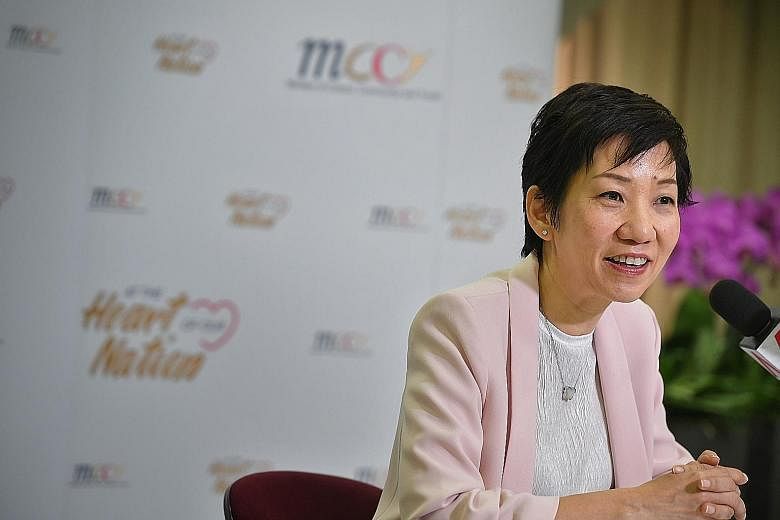Singapore is still far from the target set by the Diversity Action Committee (DAC) of having 20 per cent female representation on the boards of listed companies here by 2020.
Data released yesterday showed women held a 12.2 per cent share of board seats among the top 100 listed firms in Singapore as of June last year, while the total representation of women on all companies listed in Singapore was 10.3 per cent.
To achieve the 20 per cent goal set by the DAC in 2016 to address the under-representation of women on corporate boards here, an additional 130 female directors will have to be appointed each year from now till 2020, said Minister for Culture, Community and Youth Grace Fu.
She said the target is achievable if companies here commit to making the change. "What it takes is for half of the companies on the Singapore Exchange, especially those without female directors, to each make an effort to appoint just one female director to their board," she said.
Speaking at the launch of a study on gender diversity on Singapore's boards yesterday, Ms Fu noted that the Republic's female labour force participation rate grew from 57 per cent in 2011 to 60.4 per cent in 2016, with women making up more than 45 per cent of the labour force today.
"But women occupy only just over 10 per cent of board seats. This is far from optimal," she said. "Having female board members makes sound business sense, as they can bring diversity in views and ideas to the table. They can help manage gender-based opportunities and challenges. They can also add value to your policies and practices, providing perspectives from women, for women in the workplace.
"As the business landscape rapidly evolves, corporates and boardrooms must adapt and be equipped with more diverse strengths, skills and talent. Only then can you be truly progressive, successful and sustainable in the long run."
The study, conducted by the Human Capital Leadership Institute (HCLI) and BoardAgender, conducted 41 interviews with stakeholders of representative groups of firms from different industries. The majority had warned of the danger of tokenism and the consequences of deviating from a meritocratic nomination process.
"Unfettered pursuit of meritocracy during the nomination and selection process may sometimes preclude the consideration of women as potential candidates," it noted.
But Mr Don Chen, HCLI assistant vice-president of knowledge and solutions and lead researcher of the project, said: "Meritocracy and gender diversity are not mutually exclusive. Boards need to strike a balance between looking for candidates who fit their archetype to a 'T' and the benefits of gender diversity, where members bring a greater variety of skills and perspectives to the table."
The study also highlighted much-needed changes in board processes that would improve diversity.
It said firms should adopt a deliberate and targeted board renewal process to counter the issue of having entrenched board directors serving beyond the recommended number of years, as well as the issue of boards seeking replacements rather than renewal. It said companies should also protect the independence of nominating committees to enhance the selection process.



